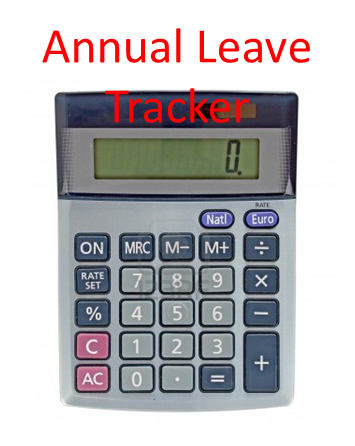Dignity at Work – 20% of racist incidents occur in workplace
In December 2013 the Immigrant Council of Ireland (ICI) brought our attention to a shocking statistic – The ICI revealed that the number of racist incidents reported in Ireland in the first 11 months of 2013 had jumped to a staggering figure – The ICI dealt with 142 individual racism cases between January and November 2013 - This figure was 85% higher than for the same 11 month period in 2012. 52 of the racist incidents that were reported occurred between June and July of 2013 alone. This signified a huge increase when compared to the same period in 2012 when just 3 incidents of a similar kind were reported.
The racism reported related to alleged discrimination, written harassment, verbal harassment and physical violence.
Denise Charlton, CEO of the Immigrant Council of Ireland, described the results as "alarming".
A massive 20% of the reported incidents of racism occurred in the workplace.
Employers need to be vigilant and need to make more of an effort to consciously crack down on this type of activity.
Employers - Did you know that you can be held accountable for bullying or harassment in the workplace?
……..Not being aware of it does not get you off the hook!
Bullying in the workplace is any recurring inappropriate conduct that undermines a person’s right to dignity at work. Bullying can be carried out by one person or by several people - it is aimed at an individual or a group where the objective is to make them feel inferior or victimised. Bullying can come in the form of a verbal or physical assault and can also take place over the internet – this is known as cyber bullying and can be performed via many methods - Mobile phones, social networking sites, emails and texts are all common vehicles for cyber bullying.
Cyber bullying is becoming more and more prevalent in society.
Keep in mind that harassment based on civil status, family status, sexual orientation, religion, age, race, nationality or ethnic origin, disability or membership of the Traveller community is considered discrimination.
Harassment in the workplace is prohibited under the terms of the Employment Equality Acts, 1998 to 2007. The Act of harassment - whether direct or indirect, intentional or unintentional - is unacceptable and should not be tolerated by any company. Any allegations should be dealt with seriously, promptly and confidentially with a thorough and immediate investigation. Any acts of harassment should be subject to disciplinary action up to and including dismissal. Any victimisation of an employee for reporting an incident, or assisting with an investigation of alleged harassment and/or bullying is a breach of Equality Legislation and should also be subject to disciplinary action.
 Bullying or harassment isn’t always obvious – in fact it can come in many shapes and forms – some examples are:
•Social exclusion or isolation
•Damaging someone’s reputation through gossip or rumour
•Any form of intimidation
•Aggressive or obscene language or behaviour
•Repeated requests for unreasonable tasks to be carried out
Employers Beware:
Under current Irish employment legislation (The Employment Equality Acts 1998-2011) companies are accountable when it comes to bullying and harassment in the workplace or workplace disputes. It is vital for employers to be mindful of the legislation as companies are answerable for the actions of employees, suppliers and customers even in cases where the company is not aware that bullying or harassment is taking place.
To defend itself a company must illustrate how it did everything reasonably practicable to prevent bullying and / or harassment from taking place in the workplace. The company must also show that when an instance of bullying or harassment occurred the company took immediate, fair and decisive action.
There is a huge risk of exposure if companies do not adhere to the strict Regulations. Those found in violation of the Act may be liable for fines and in severe circumstances imprisonment on summary conviction. Companies can also end up paying out large sums in compensation.
Bullying creates a very hostile work environment and can negatively affect employee performance – It can lead to disengagement and low levels of morale. It can also cause a company to lose key members of staff. Bullying can affect both the safety and the health of employees – this violates the Safety, Health and Welfare at Work Act 2005.
It is abundantly clear that it is in the best interest of all stakeholders to prevent bullying or harassment of any form in the workplace.
In order to avoid bullying and harassment an employer should include harassment-related policies and procedures in the Employee Handbook – A Dignity at Work Policy should be communicated clearly to employees. This will clarify what is expected of employees and what the protocol/repercussions are if bullying/harassment does occur.
Bullying or harassment isn’t always obvious – in fact it can come in many shapes and forms – some examples are:
•Social exclusion or isolation
•Damaging someone’s reputation through gossip or rumour
•Any form of intimidation
•Aggressive or obscene language or behaviour
•Repeated requests for unreasonable tasks to be carried out
Employers Beware:
Under current Irish employment legislation (The Employment Equality Acts 1998-2011) companies are accountable when it comes to bullying and harassment in the workplace or workplace disputes. It is vital for employers to be mindful of the legislation as companies are answerable for the actions of employees, suppliers and customers even in cases where the company is not aware that bullying or harassment is taking place.
To defend itself a company must illustrate how it did everything reasonably practicable to prevent bullying and / or harassment from taking place in the workplace. The company must also show that when an instance of bullying or harassment occurred the company took immediate, fair and decisive action.
There is a huge risk of exposure if companies do not adhere to the strict Regulations. Those found in violation of the Act may be liable for fines and in severe circumstances imprisonment on summary conviction. Companies can also end up paying out large sums in compensation.
Bullying creates a very hostile work environment and can negatively affect employee performance – It can lead to disengagement and low levels of morale. It can also cause a company to lose key members of staff. Bullying can affect both the safety and the health of employees – this violates the Safety, Health and Welfare at Work Act 2005.
It is abundantly clear that it is in the best interest of all stakeholders to prevent bullying or harassment of any form in the workplace.
In order to avoid bullying and harassment an employer should include harassment-related policies and procedures in the Employee Handbook – A Dignity at Work Policy should be communicated clearly to employees. This will clarify what is expected of employees and what the protocol/repercussions are if bullying/harassment does occur.

















 Force Majeure Leave is less commonly discussed. The purpose of Force Majeure Leave is to provide limited, paid leave to enable an employee to deal with family emergencies resulting from injury or illness of a close family member. Force Majeure Leave applies where the immediate presence of the employee is urgent and indispensable (essential).
A close family member is defined as one of the following:
Force Majeure Leave is less commonly discussed. The purpose of Force Majeure Leave is to provide limited, paid leave to enable an employee to deal with family emergencies resulting from injury or illness of a close family member. Force Majeure Leave applies where the immediate presence of the employee is urgent and indispensable (essential).
A close family member is defined as one of the following:
 By its nature, an employee will not usually be able to give notice of the need to take Force Majeure Leave. The employee should, however, inform the employer (in writing) of reasons for taking the leave as soon as is reasonable practicable. The employee should provide details regarding the need for the leave and should confirm who the leave was taken in respect of.
Employers are obliged to keep a record of Force Majeure Leave taken by employees.
Employees will be entitled to:
- up to 3 days paid Force Majeure Leave in any consecutive 12 month period; or
- up to 5 days in a 36 consecutive month period.
Absence for part of a day is usually counted as a full day of Force Majeure Leave. Employees are entitled to receive pay for this type of leave. Employers can grant employees more than the number of days outlined above; however, they are not obliged to do so.
Employees are protected against Unfair Dismissal for taking Force Majeure Leave or for proposing to take it.
Death is not covered under Force Majeure Leave – Leave taken when a death occurs falls under Compassionate Leave and this tends to depend on employee contracts as well as custom and practice within the workplace.
By its nature, an employee will not usually be able to give notice of the need to take Force Majeure Leave. The employee should, however, inform the employer (in writing) of reasons for taking the leave as soon as is reasonable practicable. The employee should provide details regarding the need for the leave and should confirm who the leave was taken in respect of.
Employers are obliged to keep a record of Force Majeure Leave taken by employees.
Employees will be entitled to:
- up to 3 days paid Force Majeure Leave in any consecutive 12 month period; or
- up to 5 days in a 36 consecutive month period.
Absence for part of a day is usually counted as a full day of Force Majeure Leave. Employees are entitled to receive pay for this type of leave. Employers can grant employees more than the number of days outlined above; however, they are not obliged to do so.
Employees are protected against Unfair Dismissal for taking Force Majeure Leave or for proposing to take it.
Death is not covered under Force Majeure Leave – Leave taken when a death occurs falls under Compassionate Leave and this tends to depend on employee contracts as well as custom and practice within the workplace.  Contracts provided by employers to their employees usually incorporate a mandatory retirement age (Normal Retirement Date/NRD). This tends to make it compulsory for the employee to retire at a certain age, usually this is somewhere between the ages of 60 and 65. Most contracts also include some sort of provision for early retirement on ill-health grounds etc.
Contracts provided by employers to their employees usually incorporate a mandatory retirement age (Normal Retirement Date/NRD). This tends to make it compulsory for the employee to retire at a certain age, usually this is somewhere between the ages of 60 and 65. Most contracts also include some sort of provision for early retirement on ill-health grounds etc. Interestingly, employers are allowed to set minimum recruitment ages provided that the minimum age is 18 or under.
Interestingly, employers are allowed to set minimum recruitment ages provided that the minimum age is 18 or under.




